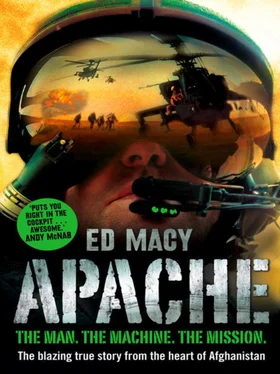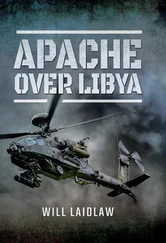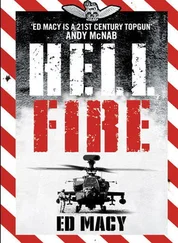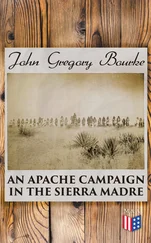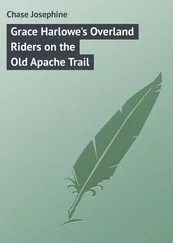It wasn’t on any maps, because it had been too dangerous to survey Helmand for decades. But you could find it thirty miles north of Lashkar Gah and two miles south off the A01 highway that links the two ancient Afghan cities of Kandahar, 100 miles to the east of us, and Herat, 300 miles to our north-west.
Surrounding the camp was one of the most inhospitable landscapes in Afghanistan. It was as flat as a billiard table, without so much as a shrub in sight. Only on clear days would the thin outline of the far-off mountain range to the north break up the monotone horizon. The locals called it the Dasht-e-Margo – the Desert of Death.
Hairy-arsed veterans frightened first timers at Bastion by telling them about the three different lethal spiders that inhabited the Dasht-e-Margo, including the Black Widow. There were also nocturnal flesh-eating scorpions that injected an anaesthetic into human skin and then munched away to their heart’s content without their victim noticing. And tiny sand flies laid their eggs in any soft tissue within easy reach – that brought on leishmaniasis, a disease that resembled leprosy.
Apart from the cheap real estate, there were good strategic reasons to be in the middle of nowhere. You could see and hear anyone coming for twenty miles, which meant the camp was very hard to attack. That was no bad thing, since the nearest sizeable Coalition garrison was twelve hours’ drive away, at Kandahar Airfield.
Bastion was the biggest and most ambitious project the Royal Engineers had attempted since World War Two. Every last spanner and tent pole had had to be driven overland from the Pakistani port of Karachi – a 1,000-mile, three-week journey. Hercules transport planes and Chinooks were too busy flying troops around, and there was no runway for them at that point. The sappers had also had to build a self-generating electricity plant and bore wells for their own water and a waste-disposal system big enough to serve a small town – which was pretty much what it was.
I was struck by how much it had changed in our absence: more tents, more fences, and proper, flattened track roads. The army was clearly planning to be here for some time.
The jalopy pulled up. We were back in the same eight man accommodation tent, a few hundred metres from the Joint Helicopter Force’s forward HQ.
‘Jammy bugger,’ said Billy, after we’d bundled through the zip door and I beat him to the best dark green army camping cot in the far corner. It was the one I’d had on the first tour. The three boxes of bottled water I’d used as a bedside table were still there too. It was like I’d never been away.
Billy was the squadron’s most senior pilot. His official title was the Qualified Helicopter Instructor; unofficially, the Sky Police. Like me he was a WO1, and the only other pilot in the squadron – apart from the Boss and me – qualified to fly in both Apache seats: the gunner’s front and the pilot’s back.
With his dark, swept-back hair, neat physique and good looks, Billy wouldn’t have looked out of place in a Cary Grant movie. A northern lad, he’d come a long way since starting out as a driver in the Royal Corps of Transport. Billy had flown more Apache hours than anyone, training initially on the original US model, the AH64A. He really loved his flying, and being an Apache pilot meant a huge amount to him. His standards were high and he didn’t tolerate sloppiness, but he was fair with it.
The other thing that really stood out about Billy was his dress sense, and – war or no war – he was never too far from a splash of aftershave. Whether in combats or a pin-striped suit, his rig was never less than perfect. Every unit badge was Velcroed in exactly the right place; his light blue Army Air Corps beret was always perched immaculately on his bonce.
All in all, Billy was the natural candidate to guide visiting dignitaries around the squadron’s base, and he loved nothing more than to oblige. In his time with the squadron, he’d toured the Chief of the General Staff, the Chief of Defence Staff, the Prime Minister and Prince Charles – not a bad haul.
Billy and I went back a long way and he took my regular abuse rather well. He enjoyed giving it back in spades even more.
We began to settle in. Each bed space measured two metres by three, and came with a portable white canvas cupboard with five small alcoves where you stuck your T-shirts, underwear and spare uniform. That was it for furniture, unless you fancied buying your own camping chair from the NAAFI.
We were in part of a network of ten identical tents, five on each side of a covered corridor. The squadron had a couple of these pods: REME and attached personnel in one, aircrew and ground-crew in the other.
The first tent on the right was a recreational room with a TV and a table covered in sun bleached newspapers and old dog-eared paperbacks. On the left was the ablutions block for the network’s fifty or so inhabitants. It contained six showers, six sinks and six toilets – all stainless steel. You were guaranteed the most uncomfortable crap in the world there, and not just because they didn’t have any seats. In the winter, the rims were ice cold, and in the summer they were so hot they scalded your arse. Hovering the Apache was a doddle compared to hovering over the tin rim.
There were around a hundred identical pods in Bastion in total, arranged in long rows. A latticework of walkways lined with black mesh grilles connected them, and roads with irrigation ditches to their sides, all walled with identical Hesco Bastion bollards.
Losing your bearings and walking into fifteen different tents before you found your own was all too common – and made you feel like a real tit. But you quickly learned to recognise tiny landmarks, like a flagpole, a regiment’s insignia or a different coloured Portaloo.
‘John looks knackered, doesn’t he,’ Billy said as we unpacked.
It was true. John had developed a manic stare, skin stretched over his cheekbones and huge bags under his eyes. We knew that look all too well; three months ago we’d seen it every time we’d stood in front of the shaving mirror.
We’d never have conceded it to anyone in our sister squadron, but the sitreps we’d got back at 9 Regiment’s North Yorkshire HQ proved they had been just as busy as we were on our first tour. Perhaps more so. The Helmand Task Force’s first six months had been a true baptism of fire.
British forces had first been deployed in April 2006 as part of a dramatic expansion of NATO’s role in Afghanistan, to establish a secure environment for reconstruction, development and government. We’d had troops in Kabul since the fall of the Taliban regime in November 2001. But while the capital and its northern surroundings had, as a result, remained relatively secure, the rest of the country had dramatically deteriorated.
In many areas, President Hamid Karzai’s government existed only in name – hence his derogatory nickname, the ‘Mayor of Kabul’. Warlords and, increasingly, rich opium barons held the real reins of power. With nobody to stop it, the heroin business boomed. The opium poppy crop doubled or tripled every year. Every local official who mattered, even slightly, was in the traffickers’ back pockets.
Nowhere was the spiralling anarchy worse than in the south. Huge swathes of the four southern provinces – Helmand, Kandahar, Uruzgan and Nimruz – were run by the drugs tsars as their own lawless fiefdoms.
With attention drifting away from Iraq, Tony Blair and George Bush were adamant that what they had started five years earlier in Afghanistan should be properly concluded. At their insistence, NATO’s International Security Assistance Force’s remit was widened to take on the mountainous eastern provinces, then the western flatlands, and finally the barren deserts of the south.
Читать дальше
Конец ознакомительного отрывка
Купить книгу
